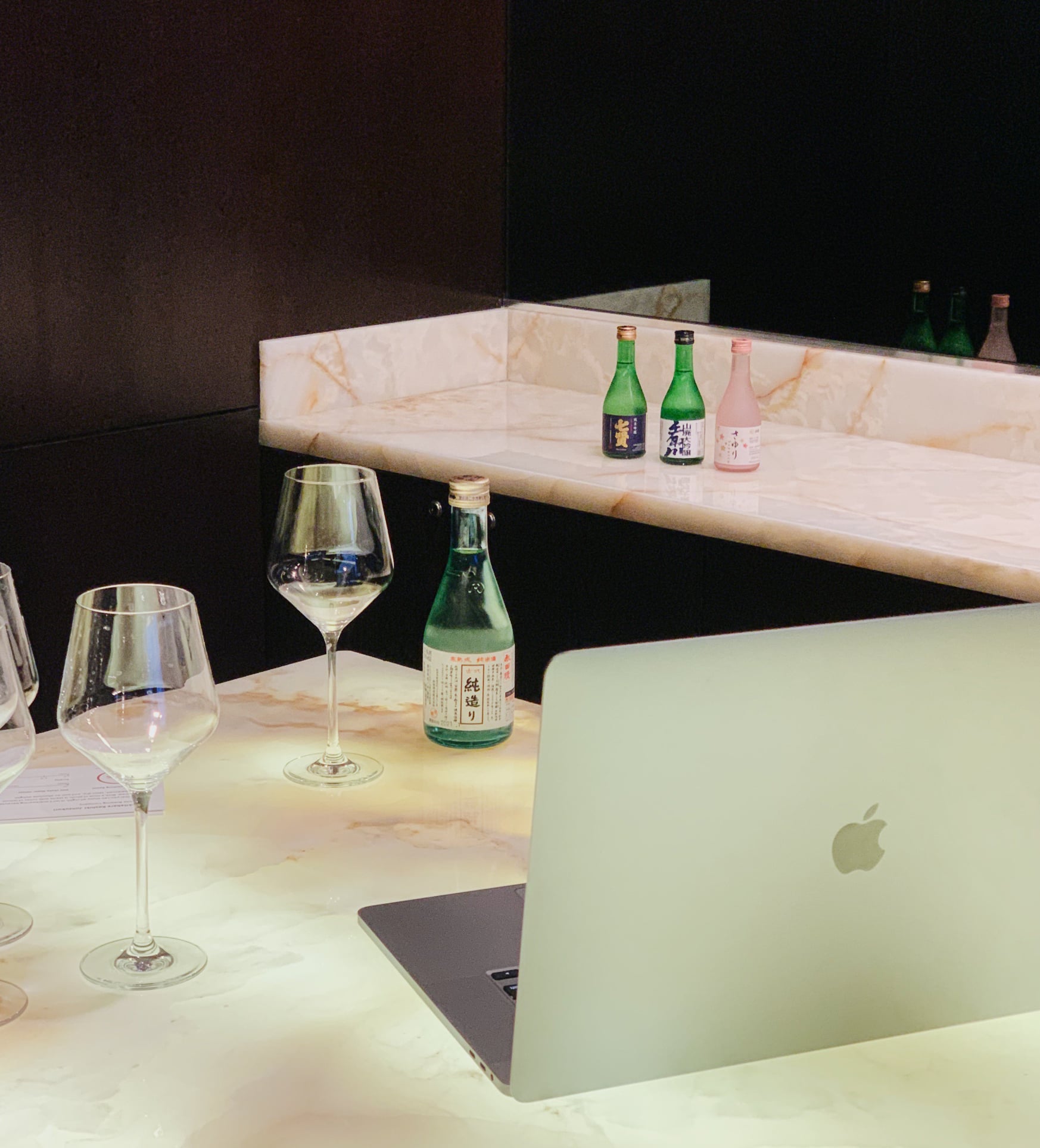
ABOUT THIS BOTTLE
Yaegaki Mu Junmai Daiginjo
In Japanese, the word mu (無) literally means “nothingness.” Why was such a name given to this sake? Mu was a brand produced in celebration of Yaegaki’s 320th anniversary in 1986. It was a time when more and more machines were being incorporated into sake-making and technology was taking over ever more of the work done by human hands. Yaegaki, however, resisted this trend and concentrated on the traditional hand-craftsmanship of sake brewing. This return to the basics-to “nothingness”-is the spirit that lives in the Mu Sake. A soft, clean sake, where its full white grapes and strawberry flavors vanish to a refreshing clean finish. Acidity and sweetness are skillfully balanced.






